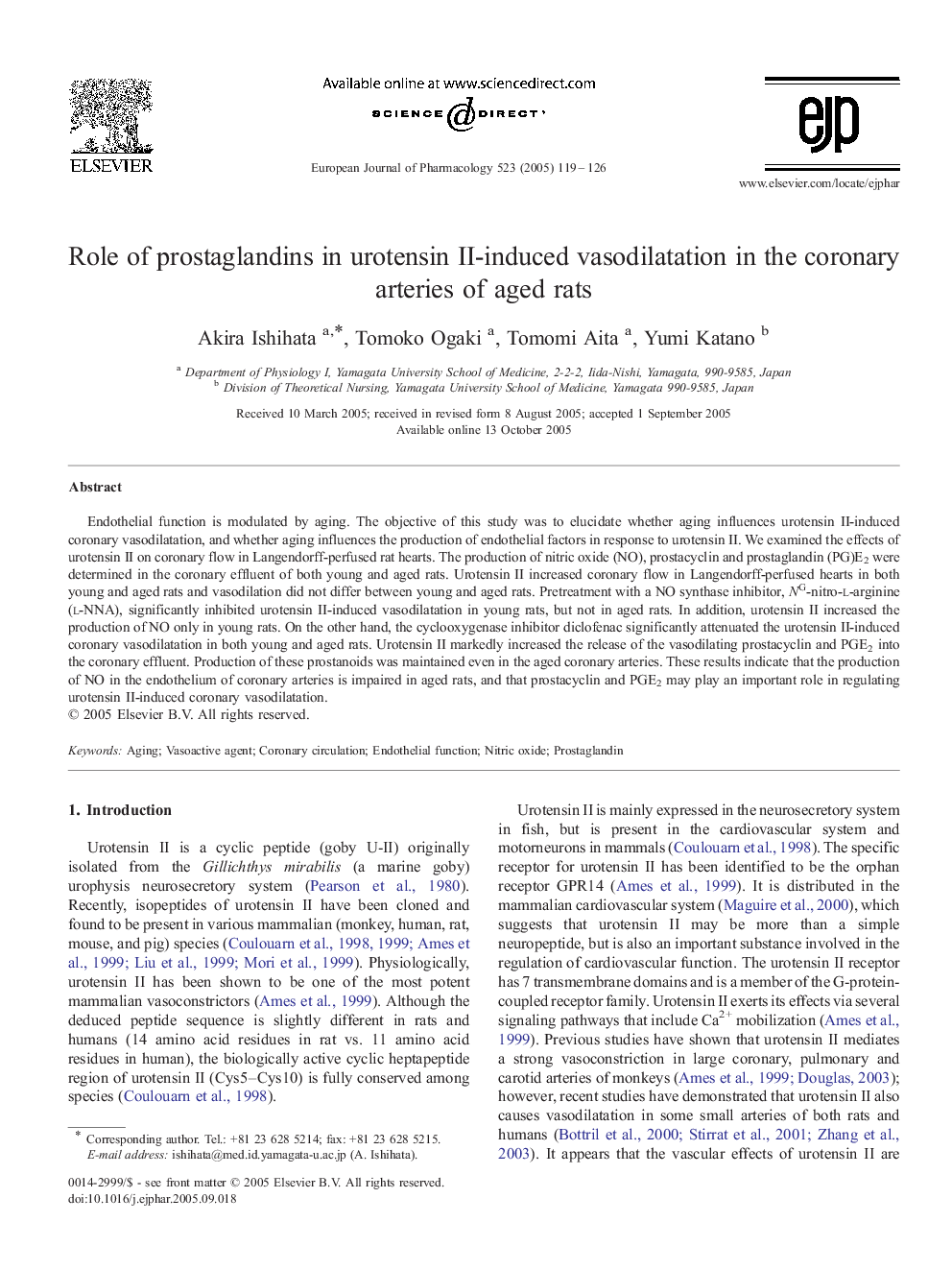| Article ID | Journal | Published Year | Pages | File Type |
|---|---|---|---|---|
| 9921052 | European Journal of Pharmacology | 2005 | 8 Pages |
Abstract
Endothelial function is modulated by aging. The objective of this study was to elucidate whether aging influences urotensin II-induced coronary vasodilatation, and whether aging influences the production of endothelial factors in response to urotensin II. We examined the effects of urotensin II on coronary flow in Langendorff-perfused rat hearts. The production of nitric oxide (NO), prostacyclin and prostaglandin (PG)E2 were determined in the coronary effluent of both young and aged rats. Urotensin II increased coronary flow in Langendorff-perfused hearts in both young and aged rats and vasodilation did not differ between young and aged rats. Pretreatment with a NO synthase inhibitor, NG-nitro-l-arginine (l-NNA), significantly inhibited urotensin II-induced vasodilatation in young rats, but not in aged rats. In addition, urotensin II increased the production of NO only in young rats. On the other hand, the cyclooxygenase inhibitor diclofenac significantly attenuated the urotensin II-induced coronary vasodilatation in both young and aged rats. Urotensin II markedly increased the release of the vasodilating prostacyclin and PGE2 into the coronary effluent. Production of these prostanoids was maintained even in the aged coronary arteries. These results indicate that the production of NO in the endothelium of coronary arteries is impaired in aged rats, and that prostacyclin and PGE2 may play an important role in regulating urotensin II-induced coronary vasodilatation.
Related Topics
Life Sciences
Neuroscience
Cellular and Molecular Neuroscience
Authors
Akira Ishihata, Tomoko Ogaki, Tomomi Aita, Yumi Katano,
